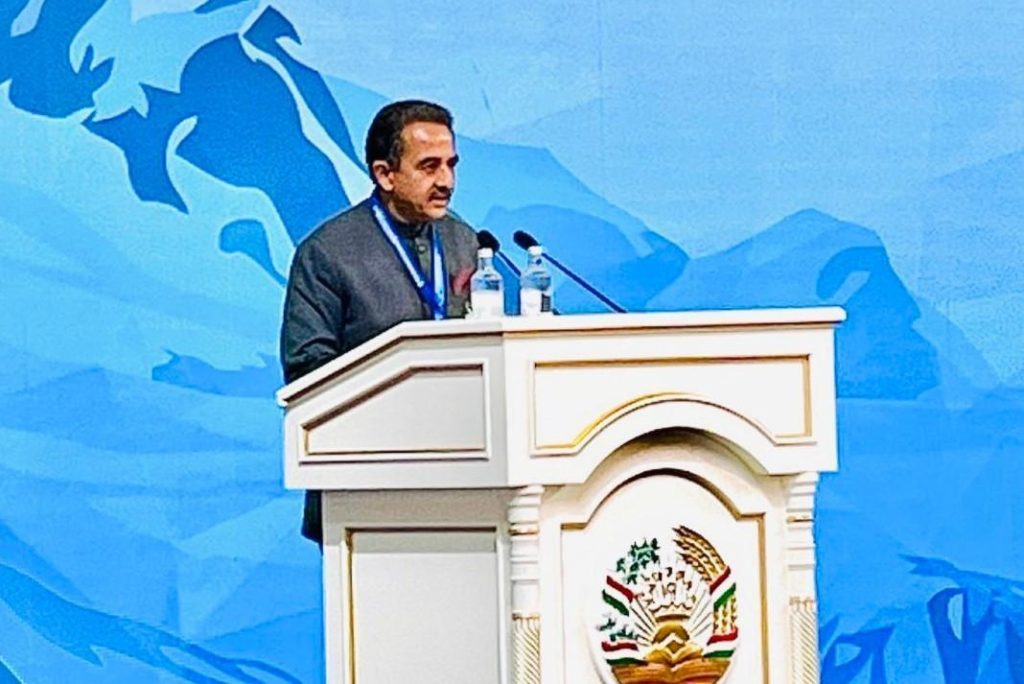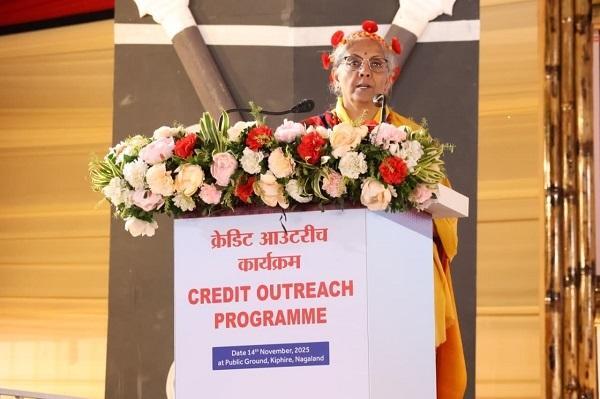
Pak Violated Indus Waters Treaty, Should Stop Blaming Us: India at UN Conference
The recent United Nations international conference on glaciers in Dushanbe was marked by a heated exchange between India and Pakistan over the Indus Waters Treaty. Indian Union Minister Kirti Vardhan Singh, who was present at the conference, strongly condemned Pakistan’s allegations against India, saying that Pakistan should stop blaming India for violating the treaty.
“Pakistan, which itself is in violation of the Treaty, should desist from putting the blame of the breach…on India,” Singh stated. This bold statement comes as a response to Pakistan’s repeated claims that India has been violating the treaty, which regulates the sharing of the waters of the Indus River and its tributaries.
Notably, India has kept the Treaty in abeyance after the Pahalgam terror attack, in which 18 Indian soldiers lost their lives. The attack, carried out by Pakistan-based terrorists, was a stark reminder of the simmering tensions between the two nations.
The Indus Waters Treaty was signed in 1960 by India and Pakistan, with the aim of promoting peaceful cooperation in the development of the Indus River and its tributaries. The treaty divided the waters of the Indus and its tributaries between the two countries, with India getting 20% of the waters and Pakistan getting 80%.
However, over the years, the relationship between the two countries has deteriorated significantly, with several instances of water terrorism and subterfuge. Pakistan has been accused of using water as a weapon to undermine India’s agricultural sector and economy.
In recent years, India has been facing severe water scarcity, primarily due to climate change and the increasing demand for water. The country has been working towards ensuring equitable distribution of water resources, including developing new water storage infrastructure and improving water management practices.
Pakistan, on the other hand, has been struggling with its own water crisis, with the country facing severe droughts and water scarcity. Despite this, Pakistan has been accused of misusing the waters of the Indus and its tributaries, including diverting water meant for India to its own agricultural sector.
In recent months, tensions between India and Pakistan have escalated significantly, with both countries engaging in a war of words over the treaty. Pakistan has been accusing India of violating the treaty, while India has been accusing Pakistan of misusing the waters of the Indus.
India’s decision to keep the treaty in abeyance after the Pahalgam terror attack was seen as a strong message to Pakistan, signaling that the country would not tolerate any further aggression or violence. The move has also been seen as a response to Pakistan’s repeated violations of the treaty.
Pakistan’s claims of India violating the treaty are baseless, and India has been calling for an independent audit of the treaty to determine the facts. The country has also been accusing Pakistan of using the treaty as a tool to undermine India’s economic development and security.
The recent exchange at the UN conference in Dushanbe is a clear indication of the deepening mistrust between India and Pakistan. While Pakistan continues to blame India for violating the treaty, India is calling for an end to Pakistan’s misbehavior and a return to the spirit of cooperation and friendship that once existed between the two countries.
In conclusion, India’s decision to keep the Indus Waters Treaty in abeyance after the Pahalgam terror attack was a strong message to Pakistan, signaling that the country would not tolerate any further aggression or violence. Pakistan’s claims of India violating the treaty are baseless, and India is calling for an independent audit of the treaty to determine the facts.
As the two countries continue to engage in a war of words over the treaty, it is essential that the international community steps in to facilitate a dialogue between India and Pakistan. The Indus Waters Treaty is a vital instrument of cooperation between the two countries, and its preservation is crucial for the stability and prosperity of the region.






